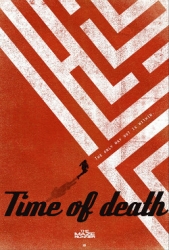A Djinni Named Conscience

A Djinni Named Conscience читать книгу онлайн
Внимание! Книга может содержать контент только для совершеннолетних. Для несовершеннолетних чтение данного контента СТРОГО ЗАПРЕЩЕНО! Если в книге присутствует наличие пропаганды ЛГБТ и другого, запрещенного контента - просьба написать на почту [email protected] для удаления материала
“Oh Suleiman ibn-Daud!” screamed the dwarf, rubbing his face with both of his small hands. “Forgive me, oh mighty one!”
The merchant stepped aside, for the dwarf was distinctly stinking.
“Then you forgive me,” went on the prisoner of the jug, having not received an answer, “oh Asaf ibn-Barahia, Suleiman’s vizier!”
The next minute Jammal caught the sidelong glance of the dwarf, full of malicious gibe, and understood that he was just mocking. The dwarf also realized he had been disclosed, and stopped pleading for forgiveness. Knitted his thin brows: “What, you fool? Was it nice to feel yourself Suleiman? Why, I’ve heard it all... Well, after all you’ve chosen your fate yourself.”
“What fate?” the merchant, perplexed, turned to Stagnash Abd-al-Rashid, and his heart suddenly stopped, freezing.
It was for the first time that he saw his djinni like this.
Severe and doomed.
As if he was going to step into a precipice of his own free will.
“Go away, Shahriash...” said the djinni named Conscience, shielding the merchant with his body.
“What, just like that – go away?!” the dwarf burst into laughter, puffing out his cheeks which immediately made him look like a toad. “Better you get out, Stagnash, while I’m still kind. You’ve never been a fighter. While this fool – let him meet his death properly. You know: if he let me free craving for wealth or power – he would get what he demanded. But he has opened the jug out of good motives! Ha! Out of compassion! H-ha! Out of mercy! Ho-ho-ho! And I’ll repay his favour fully!”
“How could you, so big, be placed in such a small jug...” muttered the merchant, remembering convulsively the half-forgotten fairy-tales of his childhood; but both djinn didn’t pay attention to him.
Only the dwarf significantly twirled his finger near his temple.
“Go away, ifrit,” repeated the Slave of Justice firmly. “I beg you. After all, he’s your saviour.”
“Suleiman has done well when he imprisoned you,” interrupted the dwarf, becoming Jammal’s height and continuing to grow. Shahriash’ arms became swollen with muscles, his fangs protruded forward, and over his spine there grew up bristle like that of a boar. “About me he was wrong, whereas with vermin like you it should have been done even earlier. You are too correct. You’re annoying. I’m asking for the last time: will you go away?!”
Stagnash Abd-al-Rashid only shook his head negatively.
In a minute, when a fiery tornado and a raging whirlpool clashed on the shore, the merchant barely had time to crawl away underneath the lee of cliffs. Apparently he fainted for some time, because only the heroes of old could watch the fight of djinn without trepidation, whereas Jammal was not a hero of old, and the merchant’s reason, once a sober and practical reason, was quivering like a parrot that felt chilly, hiding its head under the wing. Much later, after opening his eyes in a silence more deafening than the recent rumble, he saw: the ugly dwarf, cursing soundlessly, was crawling towards him from the edge of the shore. The dwarf’s body looked crumpled as a sweeping rag; Shahriash was gritting his teeth, stretching his guttering hands to the merchant, but the sand was soaking the ifrit in, braiding him with dark threads – and soon only a wet path was marking the way of the prisoner of the jug.
And near a glistening boulder there was standing Abd-al-Rashid. He was still standing, pulsating like a fading tongue of flame, but soon his legs gave way and the djinni fell on the sand. With the palm of his right hand he was pressing his neck in the place where human beings have the jugular vein. The merchant rushed to his djinni, sobbing, seeing in terror that from under the fingers of the Slave of Justice there was leaking out black smoke mixed with fire.
The ashen-pale face of the djinni lit up with a smile.
“He’s told the truth: I’m a bad fighter...”
“Doctor!” cried out Jammal like a madman, glancing around. “Doctor!”
His scream rushed about over the shore.
“There’s no need for a doctor. I’m a djinni, not a human being. There’s fire flowing in my veins, and soon it will run out. Let’s bid farewell, oh my saviour? A pity I hadn’t time... I couldn’t...”
“You must live!” the merchant wasn’t understanding what he was saying, what he was demanding, yet the wet path behind his back was getting dry twice as fast, as if a second sun had lit nearby. “You will live! I’ll find a way! I swear, I will...”
Seagulls were crying over the two, mourning the day, and a wisp of smoke drifted towards the birds.
Later on Peter Sliadek never managed to understand: when exactly had he fallen asleep? To all appearances, in the very beginning of the tale, and the entire story about the djinni was just his dream. Furthermore, it was unclear how long had he slept. An hour? Two? More?! When the dream surged back and Peter opened his eyes, Kerim-aga wasn’t nearby. The caravan-bashi, judging by the droning of his bass, was standing at some distance talking to someone.
The vagrant sat up, wrapping himself in the blanket.
Near the doors of the vast apartment where he was lying people were crowding. Peter recognized Kerim-aga immediately, the rest were unknown to him. A puny old man – a Lombard banker, judging by his clothes; near him – a giant Avraamite, looking like a stevedore, only dressed as a money-changer and with a purse in his belt. A young merchant was hanging about, glancing into everyone’s eyes.
“Sieur Fiarella! Rabbi Boruch! You’ve misunderstood! You’ve...”
Peter recognized the voice of the young merchant. This man had proclaimed not long ago: “I’ll persuade even the dead!” when he was about to take on a loan. Now he was looking miserable and ingratiating.
“Kerim-aga!” the Lombard stepped towards the caravan-bashi, touching his shoulder confidingly. “Forgive old Fiarella! I didn’t know it was you who lead the newly arrived caravan, while this... this young man hasn’t troubled to inform us. Hussein Borjalia, you are disgracing your father’s name! You know, dear Kerim-aga, if we had your word we would buy the entire slave market wholesale, and the loan would be at minimal interest!”
Joy flashed in the mouse-like eyes of Hussein Borjalia. One way or another, there will be a loan! It flashed – and faded away when the severe caravan-bashi turned to Hussein. “Aren’t you ashamed, Hussein?” asked Kerim-aga quietly.
“I... me...” prattled the merchant. Peter saw with astonishment how Hussein’s face was changing: from behind the mask of embarrassment and fading joy there was peeping out an offended boy who had realized for the first time in his life he could be punished for a good reason rather than offended. “Kerim-aga, I haven’t thought that the loan...”
The caravan-bashi shook his head wearily: “It’s not about the loan. The son of Mustafa Borjalia is self-determined to take loans in Vrzhik. It’s your right. There is another thing: you knew I don’t deliver slave caravans, didn’t you?”
And as if confirming his words, he looked for a moment over his left shoulder. Smiled. And once again, this time without pressing: “You must be ashamed, Hussein. It’s bad when a man carries on foul dealings secretly from the others. And it’s good when a man is ashamed afterwards. I’m telling odd things, sometimes senseless ones, but you must understand me, Hussein Borjalia. Because I can’t do otherwise.”
“He has understood you, Kerim Jammal,” droned the giant Avraamite, two tones lower than the caravan-bashi himself. “He’s understood you perfectly well. Would you be so kind as to visit my house today? Miriam will be very glad. She asks frequently: where are you? How are you? And little Yitzhak...”
Listening to their conversation Peter Sliadek didn’t know yet that he would go with the caravan all the way to Dragash, and then back to Vlera, as a driver, a porter, an errand boy – not for salary but for a piece of bread and the possibility to go near Kerim-aga, looking now and then over his left shoulder. They would depart on the shore of Vlera Gulf. The sailed galley “Sultan Machmud” would leave the shore heading for Barletta, and the vagrant, as thin as a rake, would freeze on the deck, bidding farewell to the caravan-bashi Kerim Jammal. And in the morning mist Peter would once again seem to see behind the back of Kerim-aga the swarthy djinni pressing the torn neck with his palm. The smoke was flowing from under the fingers of Stagnash, the Slave of Justice, yet the djinni was smiling and not hurrying to die, for the fire in his veins would not end. The fire that is sometimes burning, sometimes dangerous, but always alive.
























